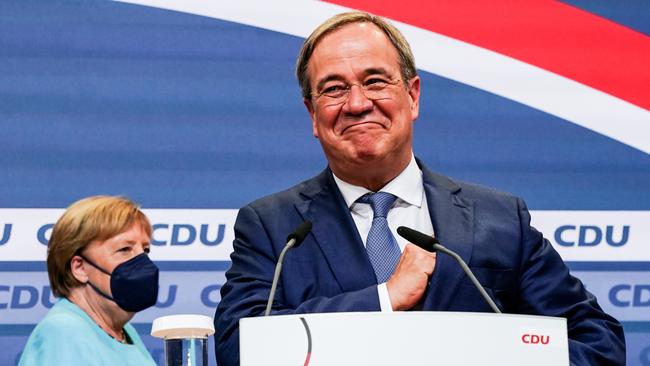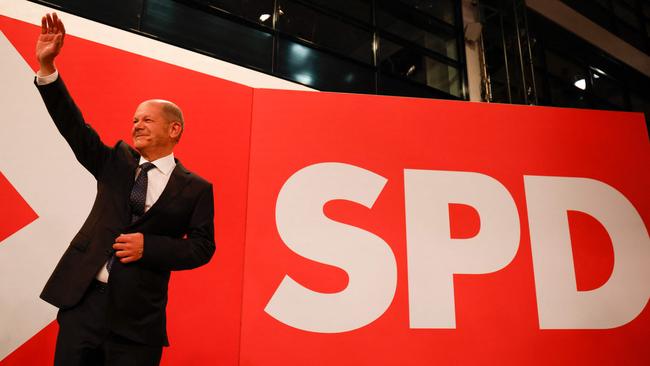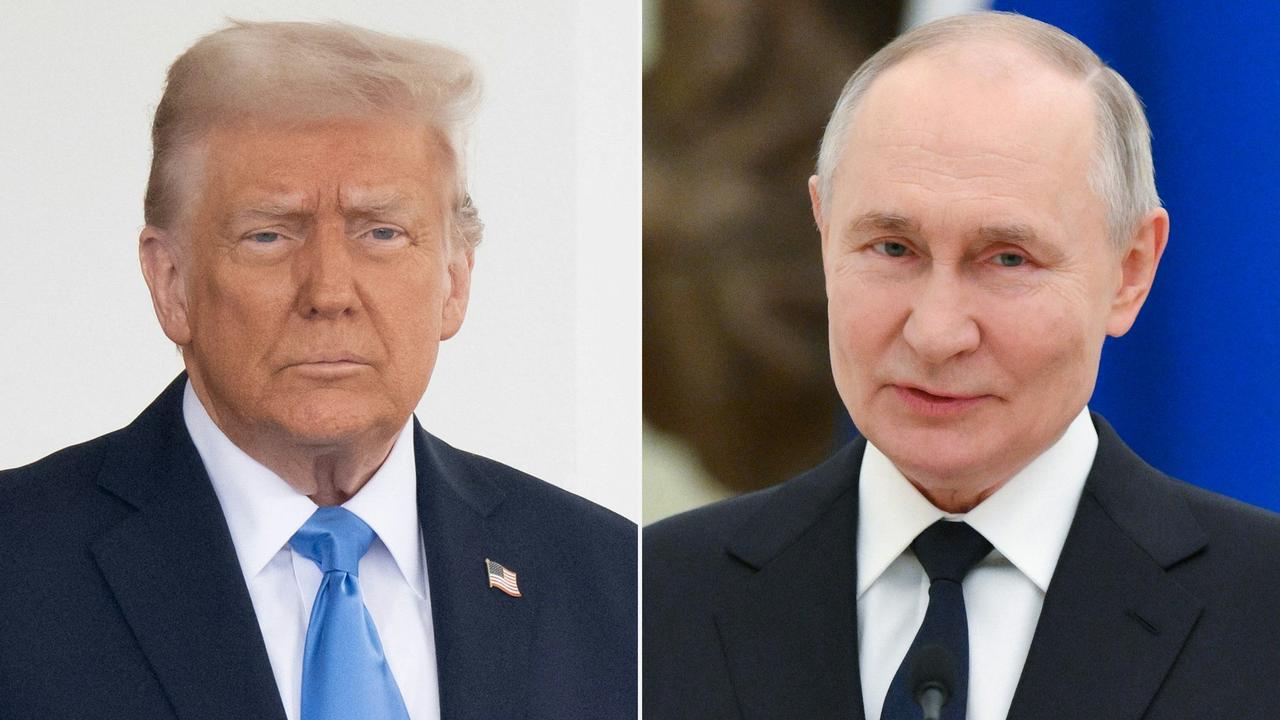Socialists win tight German poll, but will need coalition to rule
Germany is poised for weeks of horse trading before the successor to Chancellor Angela Merkel is known.

Germany is poised for weeks, even months, of horse trading following Sunday’s tight election after which the candidates of the Social Democrats (SPD) and the conservative CDU-CSU alliance both claimed victory in their bid to succeed Angela Merkel as chancellor.
Preliminary results on Monday showed the SPD had narrowly won the election with 27.5 per cent of the vote. The Christian Democratic Union and its Bavarian sister party, the Christian Social Union, came second with 24.1 per cent of the vote, the alliance’s worst result in its seven decade history.
The Green party came third with 14.8 per cent, with its condidate, party co-leader Annalena Baerbock, 40, emerging as a potentional kingmaker alongside Christian Lindner, the leader of the pro-businees Free Democrats Party, which secured 11.5 per cent of the vote.
The SPD’s chancellor candidate, Finance Minister and Vice-Chancellor Olaf Scholz, 63, and Armin Laschet, 60, from Ms Merkel’s CDU each claimed a mandate to govern, setting off a scramble for potential coalition partners.
Mr Scholz and Mr Laschet immediately pitched for the support of the Greens and the FPD.
The SPD and the Greens are likely to strike an early alliance, but they will still need the support of the FDP, which has vastly different political priorities in regards to the environment, the economy and dealing with coronavirus.
The FDP is more aligned with the CDU-CSU, but for this centre-right coalition to govern it will require the support of the Greens.
Some analysts are suggesting that despite the SPD having won the election, the CDU may end up forming a minority government.

Neither the SPD nor the CDU-CSU want a repeat of the left-right coalition that has featured in three of Ms Merkel’s four governments.
Ms Merkel’s desire to leave politics by Christmas after 16 years in power may be highly optimistic as she will continue as caretaker chancellor until the political leadership is determined. Should the talks last beyond December 17, Ms Merkel will overtake Helmut Kohl’s record as Germany’s longest-serving chancellor.
Mr Laschet evoked a sense of urgency, saying Germany’s stint as president of the G7 next year meant the country needed to have a government in place capable of taking action.
“The new government must come into office soon, definitely before Christmas,” he said.
The Greens were the biggest winners in the election, leaping from 7 per cent of the vote four years ago to almost 15 per cent.
The far right Alternative for Germany (AfD) maintained similar support from the previous election, with 10.3 per cent of the vote but both major parties have pledged not to engage them in coalition talks.
The far-left Linke party lost support and was on track to only narrowly reach the 5-per cent threshold needed to enter parliament. It is unlikely, at this stage, to be involved in forming government.
The vote was seen as a big win for Mr Scholz, who has been deputy in Ms Merkel’s CDU-CSU-SPD government and who campaigned on a platform as business as usual. But his party, the SPD, is led by more left-leaning activists.
He told supporters in Berlin: “It is going to be a long election night that’s for sure, I am also sure many voted for SPD because they want a change of government and want the chancellor to be Olaf Scholz.”
Mr Scholz said his party was “pragmatic, we know how to govern, we are optimists and want a better future”.
Mr Laschet said “we cannot be happy” about the election result and warned it left the country in “an extraordinary situation”.
He said a vote for the CDU/CSU was a vote against the left-leaning parties. “This is why we will do everything we can to form a German government led by the CDU because what Germany needs now is a future coalition that modernises our country, for more sustainability, climate protection but also financial stability.”
Ms Baerbock stayed vague about her preferred tie-up, saying only it was time for “a fresh start” in Germany.
Mr Lindner, 42 suggested sitting down with the Greens first before starting talks with the two bigger parties to speed up the process. He has signalled a preference for a “Jamaica” coalition with the CDU-CSU and Greens – named after those parties’ black, green and yellow colours – but has not ruled out a “traffic light” constellation with the SPD and the Greens.




